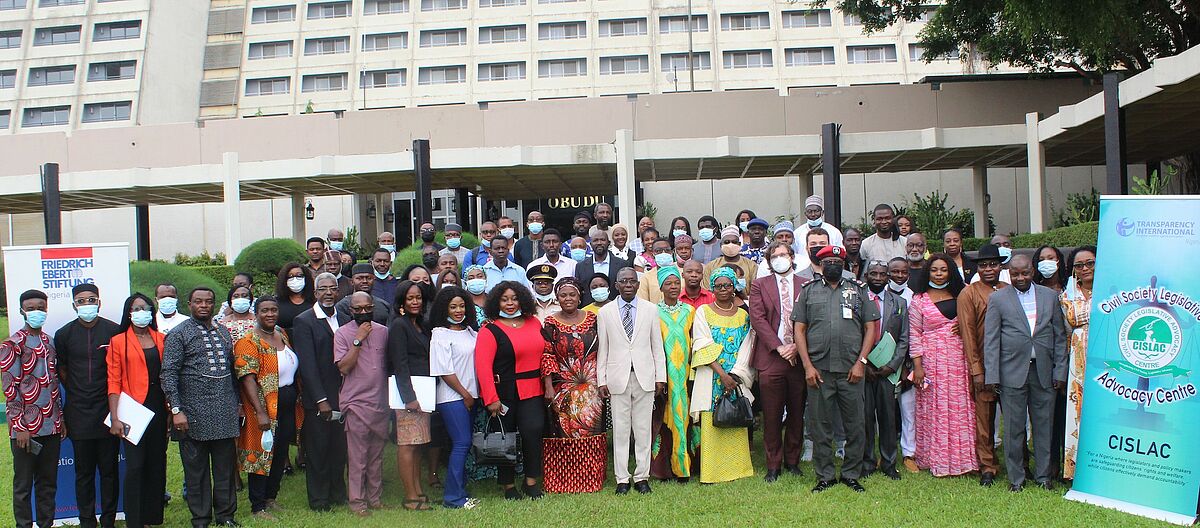Gaps in Security Sector Reform and Governance – Possible Contributions of Civil Society and Non-Traditional Security Actors

The Friedrich-Ebert-Stiftung Nigeria, and Civil Society Legislative Advocacy Centre (CISLAC), with co-funding from the European Union (EU), organized a two-day conference on Gaps in Security Sector Reform and Governance as identified by the Nigerian Network for Security and Democratic Governance (NINSED) over the years.
The conference brought together over fifty (50) participants consisting of experts, security operatives, CSOs and professionals to discuss the streamlined gaps in SSR/G, building from the analysis of the commissioned research papers on Accountability, Police reform and Policing, National Security Architecture, Inclusivity, Informal Security Sector and Institutional Capacity and Capability of the Security Sector.
The forum was designed to provide an expertise-driven platform for a comprehensive discussion on the gross and growing inefficiency of the country’s security sector and the contributions of non-traditional security actors in addressing the gaps in the security sector.
In the end, some of the recommendations were
- The need to rejig SSR/G is long overdue, simply on the account that SSR/G as it is presently being executed is not working optimally. If left unreformed, the current practice of excluding those outside the traditional orbit of state security will continue to the detriment of the society.
- A need for very strict criteria of accepting/engaging non-traditional security actors (NTSAs) civil society groups. Their parameters/activities should be well spelled out and monitoring benchmarks established to obviate such activities becoming transactional, self-administering or counterproductive.
- Decentralization and devolution of levels of policing to state, local government, and specific institutions security.
- The Federal Government of Nigeria (FGN) should embark upon a deliberate and broad-based SSR programme that is focused on developing the state’s capacity and legislative oversight and improving security agencies’ professionalism
- While there is an acknowledged challenge of manpower across the security forces especially the Police, there is a greater problem of the lack of strategic allocation and deployment of the manpower available, as the elites have appropriated the available manpower to themselves.
A comprehensive report would be developed and shared with the relevant actors and stakeholders in security sector governance and reforms, as well as the public when available.
Friedrich-Ebert-Stiftung
Peace and Security Centre of Competence Sub-Saharan Africa
Villa Ebert
Avenue des Ambassadeurs
Fann Résidence
25516 Dakar-Fann
Sénégal